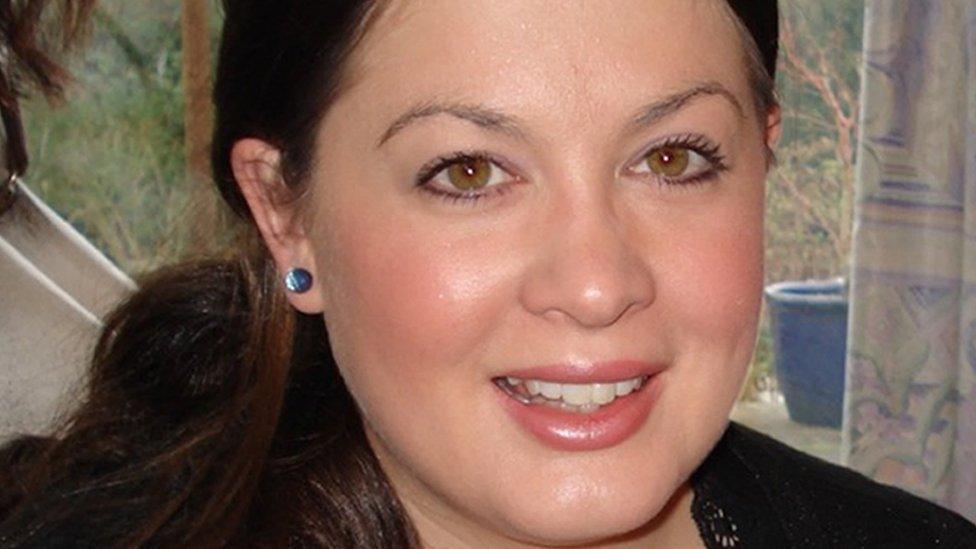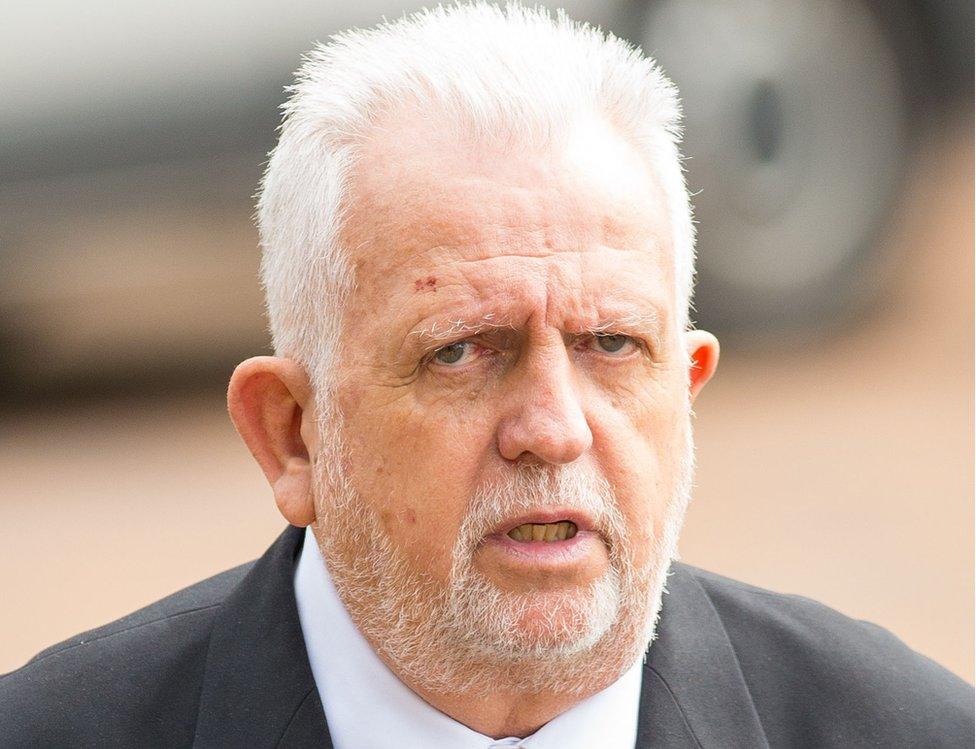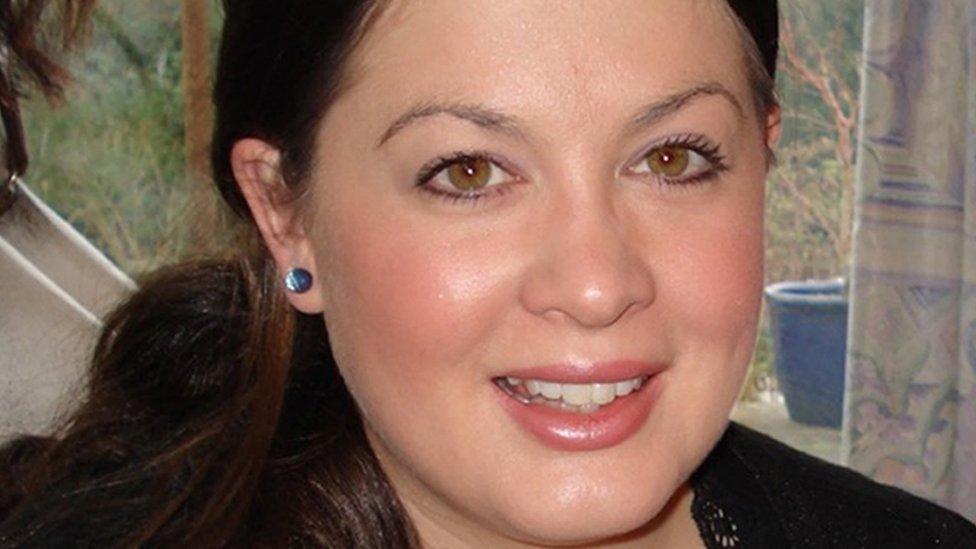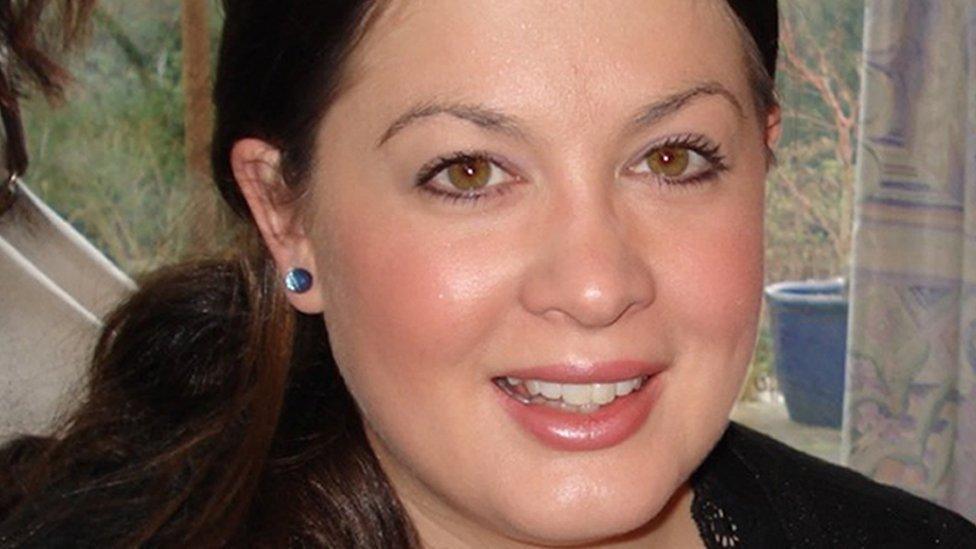Frances Cappuccini death medic made 'series of errors'
- Published

Frances Cappuccini died at Tunbridge Wells Hospital in October 2012
A woman died after surgery following a Caesarean birth because of an anaesthetist's catalogue of failures, Inner London Crown court has heard.
Dr Nadeem Azeez made errors before, during and after surgery which led to Frances Cappuccini's death at Tunbridge Wells Hospital in Kent, anaesthetics expert Professor Philip Hopkins said.
Dr Azeez is not on trial having left the country.
Maidstone and Tunbridge Wells NHS Trust denies corporate manslaughter.
Another medic, consultant anaesthetist Dr Errol Cornish, of Holmbury Park, Bromley, London, denies manslaughter by gross negligence.
Prof Hopkins said errors by Dr Azeez included that he appeared not have physically examined her before surgery; he failed to call a consultant anaesthetist - a more senior doctor - to help insert a breathing tube after judging it would be difficult; he delayed reintubating her even though she was struggling to breathe; and he displayed "poor" record keeping throughout.
"The most important things [failures] are the most basic things - the things you teach on day one of anaesthetist training," Prof Hopkins said.
"He failed to secure and protect Frances Cappuccini's airway and failed to ensure that her breathing was adequate."
He added: "If a consultant anaesthetist had been present with Azeez, Frances Cappuccini would not have died."
'Red flag'
Prof Hopkins said his investigation found Dr Azeez, who trained in Pakistan, was not qualified for the role of "specialty doctor" grade anaesthetist when he was appointed in 2008, and undertook very little extra training in post.
He said appraisals in 2010 and 2011 contained enough material to have Dr Azeez reported to the hospital's clinical director of anaesthesia, but there was no evidence it had happened.
One appraisal noted Dr Azeez lacked motivation to undertake activities to improve his skills.
"If a doctor is lacking the will, the motivation to keep [their skills] updated, it is recognised as a 'red flag'. It is a warning that things might go wrong," Prof Hopkins said.

Dr Errol Cornish is accused of manslaughter by gross negligence
Prof Hopkins said when Dr Cornish, a freelance "locum", arrived in theatre to help Dr Azeez, the situation was "recoverable".
"He should have taken over the airway himself as the senior anaesthetist and he should have made preparations for her reintubation, asking (the assistants) to get the necessary equipment and he should have reintubated Mrs Cappuccini and ensured adequate ventilation," he said.
The court has heard from witnesses who said Mrs Cappuccini was only reintubated after another anaesthetist arrived.
Prof Hopkins said: "His [Cornish's] seniority compounded the failings - it makes them worse."
The court heard Dr Cornish was appointed as a consultant anaesthetist without being interviewed by the hospital.
Prof Hopkins said: "An experienced interview panel would have very quickly been able to (identify) deficiencies in his knowledge, or in the application of that knowledge in clinical practice."
Jurors have heard Mrs Cappuccini, 30, lost more than two litres of blood when she gave birth to her second son Giacomo by Caesarean and had subsequent surgery for postpartum bleeding but never woke up in October 2012.
The prosecution has said Dr Azeez and Dr Cornish failed to ensure she safely came round from surgery.
And the prosecution also claims if one or both doctors are found to be grossly negligent the trust can be said to have employed someone it knew or should have known was not suitably qualified or trained for their role.
It is the first time an NHS trust has been charged with corporate manslaughter since the charge was introduced in 2008.
The case continues.
- Published18 January 2016

- Published15 January 2016

- Published14 January 2016

- Published13 January 2016
